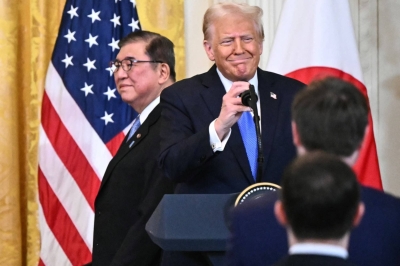Thirty years ago, Chile's elected government was overthrown by a military coup. While most of the world remembers Sept. 11 as the day that marked the beginning of the war on terror, Chileans commemorate the end of a presidency and the cleaving of their country into two, as yet irreconcilable, halves.
Salvador Allende, a socialist, was elected president of Chile in 1970. Although he won just 36 percent of the popular vote, his administration turned its back on the center and embraced a radical socialist agenda to accelerate down the "peaceful road to democratic socialism." Allende's government adopted a Marxist program of land expropriation and nationalization of industry. The country's economy soon collapsed, and the military, fearing a communist takeover and with Washington's support, launched a coup.
On Sept. 11, 1973, air forces and ground troops attacked the presidential palace. While under siege, Allende delivered a speech to the Chilean people and then either shot himself with a machine gun given to him by Fidel Castro or was murdered. The three years of Allende's presidency became one of the most bitterly disputed periods in Latin American history.

















With your current subscription plan you can comment on stories. However, before writing your first comment, please create a display name in the Profile section of your subscriber account page.